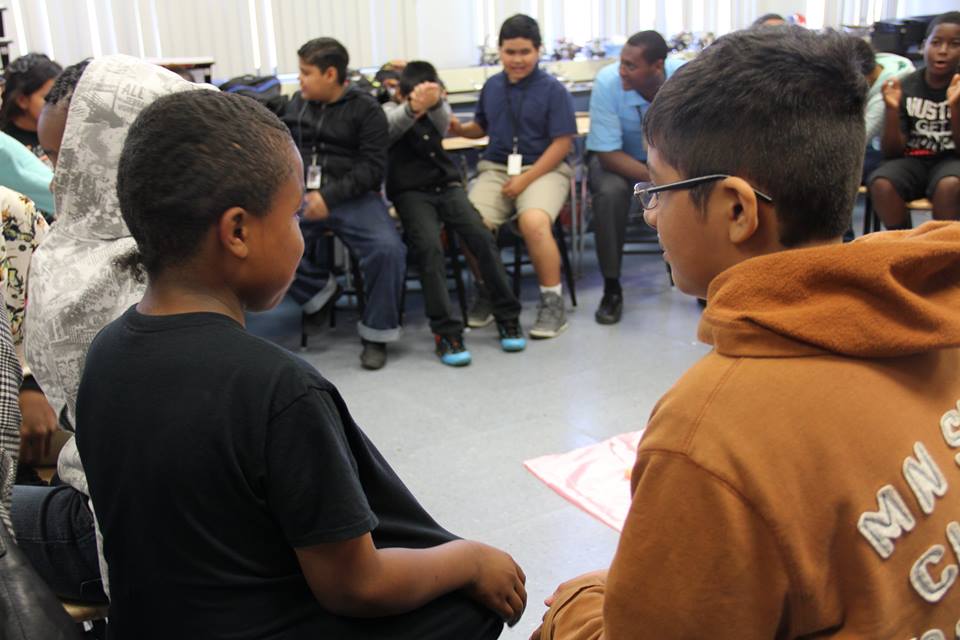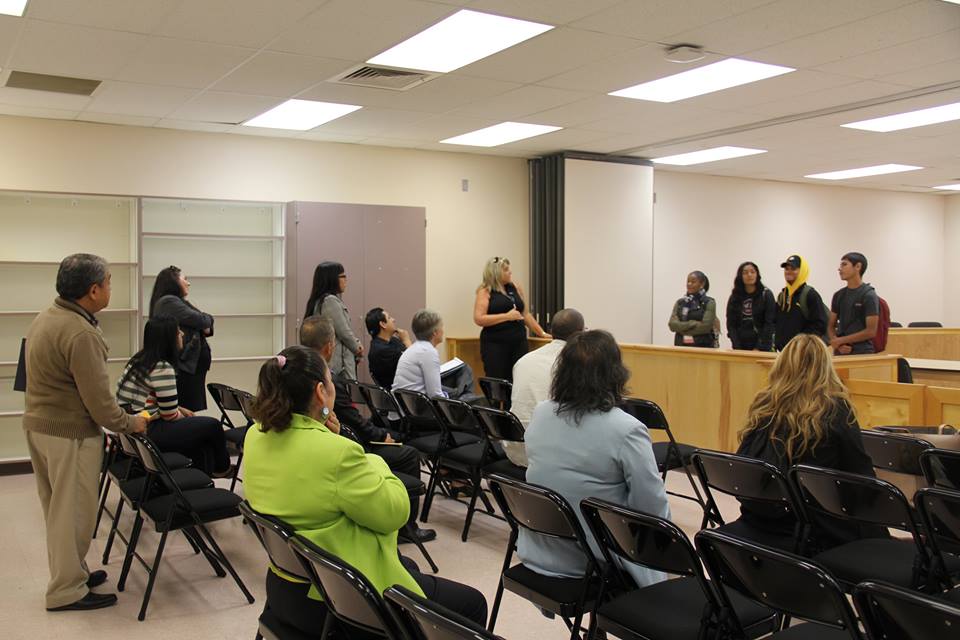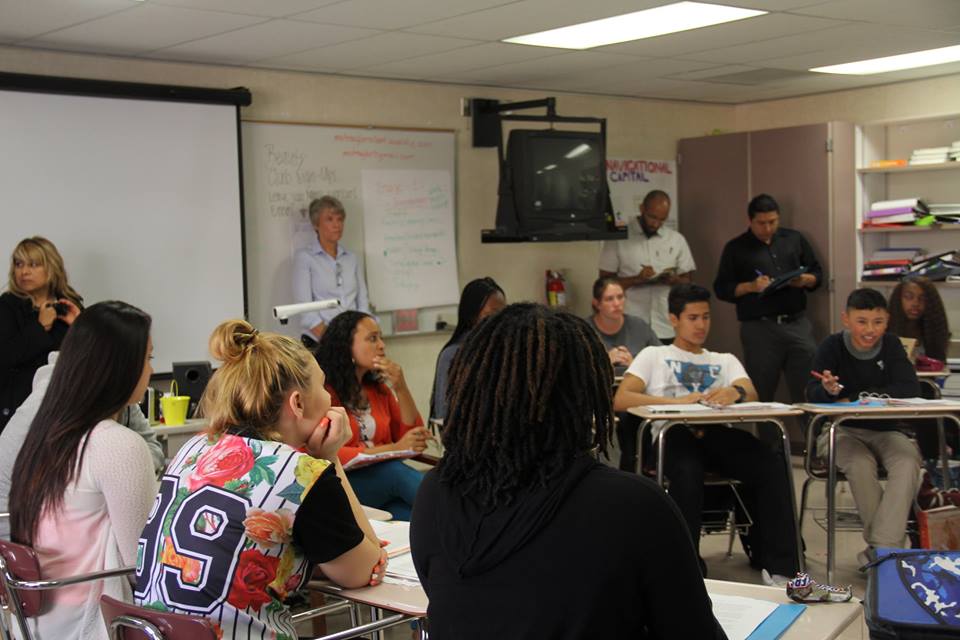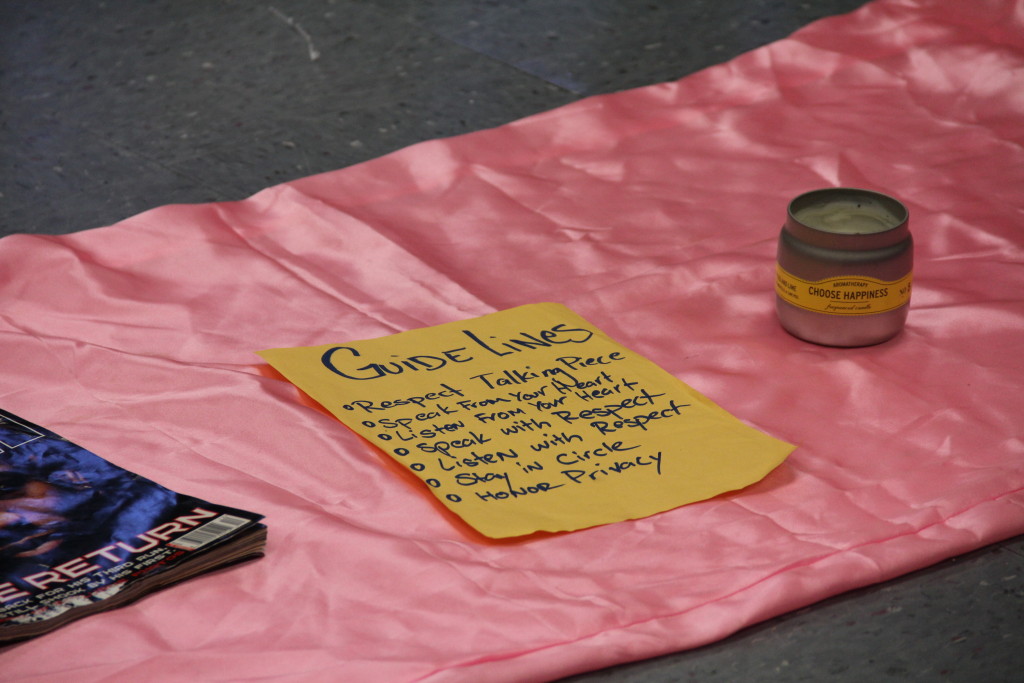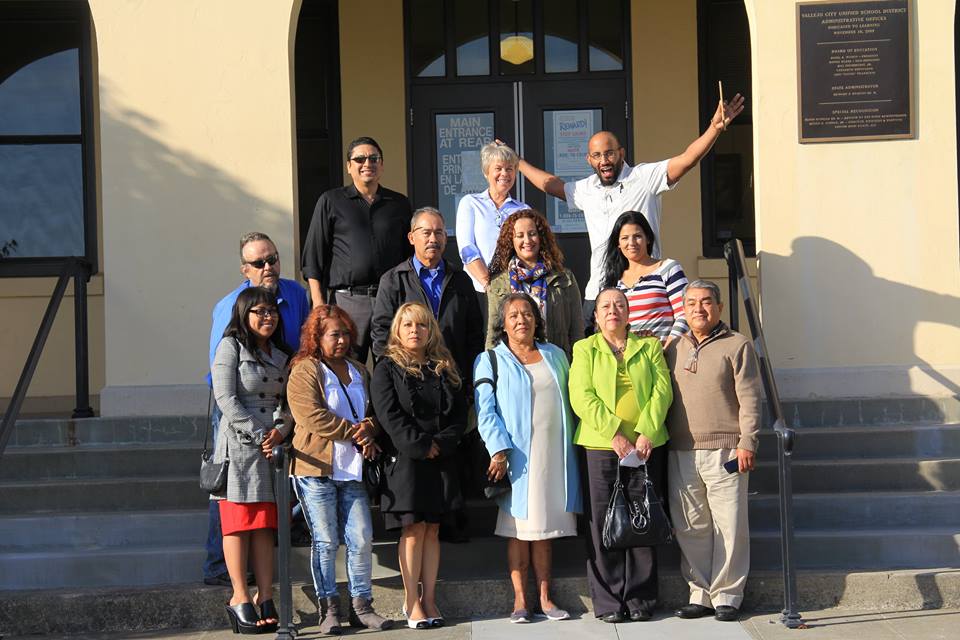
South Kern Sol, News Report, Clara Bruno
When Dr. Ramona Bishop took up her post as superintendent of Vallejo City Unified School District, she faced an uphill battle in overturning some troubling statistics. Schools in the area had some of the state’s highest suspension, expulsion and dropout rates, while academic performance lagged.
“One out of every two of our children were dropping out of school,” recalled Bishop. “We were one of the top ten suspending school districts in the State.”
One school, Jesse Bethel High School, had a 50 percent dropout rate, she said.
That was before Bishop adopted Positive Behavioral Intervention and Supports (PBIS) practices across the district’s 23 schools, where a majority of students are students of color. Under PBIS, educators are encouraged to move away from punitive disciplinary practices like suspensions and expulsions. Instead, they are trained to use restorative justice practices proven to enhance academic and social outcomes for all students.
Bishop credits PBIS with helping to push the graduation rate at Jesse Bethel up to 72 percent.
A group of education activists with the Kern Education Justice Collaborative — formed in 2013 to address the disparities in suspension and expulsions between white and non-white Kern High School District (KHSD) students — recently traveled to Vallejo to meet with Bishop and to learn more about the success the district has had with PBIS. The trip also offered the chance to see whether lessons learned at VCUSD could be applied to schools in Kern County, which continues to suspend black and Latino students at rates far exceeding that of white students.
The disparity led to a lawsuit filed last year by members of KEJC, including the Dolores Huerta Foundation. That suit is still pending.
In the meantime, adoption of PBIS in Kern has been sporadic at best.
According to Bishop and Dr. Alana Shackelford, VCUSD’s community engagement officer, all teachers in the district are trained to recognize signs of trauma in a student. Once those students are identified, they are referred to a mental health specialist assigned to the school through a special residency program designed to study community health in Vallejo. There are currently 12 such specialists working in the district.
“We are working with Kaiser, which just reworked its residency program to give us a resident on our site to help with our trauma cases,” said Jesse Bethel Principal Linda Kingston, adding the school also has a Kaiser Teen Clinic on campus that all students have access to.
District administrators say that by helping students deal with trauma, they are tackling issues before they grow into larger problems that eventually lead to students dropping out, or being suspended or expelled.
High schools in Vallejo operate on a “Wall to Wall Academy” structure. Each high school offers a variety of academies, academic tracks that align with career avenues. So, for example, Vallejo High School has a Biotech Academy, Engineering Academy, Health and Fitness Academy, Hospitality Academy and a Visual and Performing Arts Academy.
Each academy has advisory boards made up of professionals who work with teachers to prepare curricula aligned to state academic standards and to work in that field. Students are often offered paid internships over the summer in order to further their education.
One such academy at Jesse Bethel is the Law and Justice Academy, which recently saw the creation of a student court made up of peers who hear cases involving school incidents and apply the appropriate punishment. Offending students are given the option to have their case heard in court or be suspended for three days.
The school recently built a courtroom, complete with a juror’s box, witness stand and judge’s chair. After the trial, the court holds a restorative justice circle where everyone involved sits down with the group overseeing the case and an adult moderator. The group then discusses what happened and how they can resolve it without having to suspend or expel.
Even local elementary schools hold restorative justice, or RJ circles. At Elsa Widenmann Elementary, students in 5th and 3rd grades joined a kindergarten class for a weekly RJ circles. Students shared problems they are facing at school or home, and talked about something exciting in their life.
During one of the circles, the students passed around a plastic hand clapper and were instructed to complete the sentence, “Today is a great day because…”
“Today is a great day because I have all my work ready to turn in,” said one 5th grader.
“Today is a great day because I will learn something new,” said another.
At Widenmann, students are given yellow tickets to be entered into a drawing for “Being Safe, Being Respectful, and Being Responsible.” The prize can be a treat, a book or a bookmark and a pencil.
Over the past two years KEJC has been advocating for the adoption of PBIS and Restorative Justice practices across the Kern High School District. Coalition members say doing so will help reduce the high suspension and expulsion rates seen here, and lead to better academic outcomes for all students.
